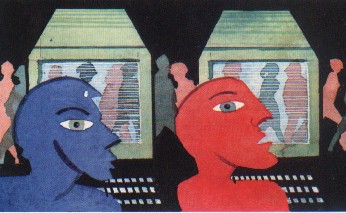In The Press
NEW STATESMAN - 1O JULY 2000
How the net can make a difference
Alex Greenwood interviews five net users who've found that technology really has improved the quality of their lives
In the Sixties and Seventies, the internet was a testosterone- fuelled man's world populated solely by military types and academics. Twenty years and 300 million users later, the net is finally starting to have an effect on the lives of everyday people: they are using the net to communicate with relatives on the other side of the world, they're using it to set up support groups, they're using it to track down lost friends and family members and, most importantly, they're using it to put up pho- tos of their pets. Yes, I know it sounds cheesy, but technology really can change lives. . .
I found support
Wendy Bond is a member of the online support group Adders
(adders.org). She joined the British site devoted to attention
deficit and hyperactivity disorder in February and, after two
years of trying to get her daughter assessed for attention deficit
disorder (ADD), she managed to get her a clinical diagnosis
within months.
Through the site, Bond gained enough knowledge about ADD to lead her to the right professionals. "I have now got answers to questions I've been asking for too long," she says. "If it hadn't been for Adders, I think I would probably still be reading-and getting bored with-books on the subject."
She found the site through a search for information on ADD. "Adders was vital for me at the time," says Bond, who describes herself as a "34-years-young" married mum. "I was desperate to find an answer as to why one of my daughters was having so many difficulties."
The site's value falls into a variety of areas. "It gives links to related internet sites, as well as recommending books on the subject," she says. "But the most valuable aspect of the site, I've found, is having contact with people who are in the same situation as me without feeling intrusive.
"There's a united atmosphere, with lots of support from the members," she continues. "Advice is given freely and, for myself, I don't feel that I am alone with my problems. People involved with Adders genuinely care."............
The above is an extract from the article which appeared in The New Statesman, 10th July 2000